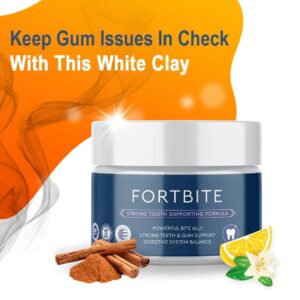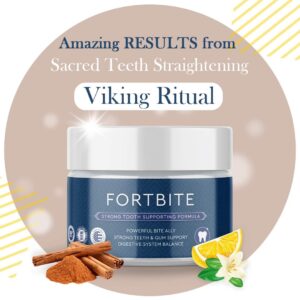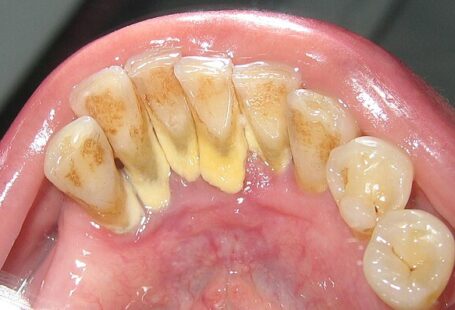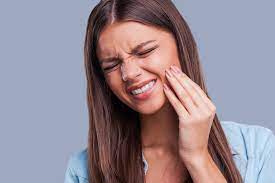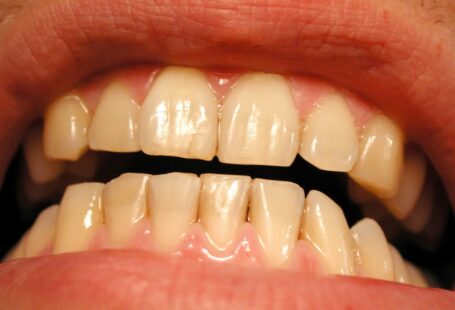How do you take care of braces daily?
Taking care of braces is important to ensure the success of your orthodontic treatment and to maintain good oral health. Here are some daily care tips for braces:
- Oral Hygiene: Proper oral hygiene is crucial when you have braces. Brush your teeth after every meal and before bedtime. Use a soft-bristle toothbrush and fluoride toothpaste. Be sure to brush around and between the brackets and wires. An interdental brush or a water flosser can be helpful for cleaning hard-to-reach areas.
- Flossing: Flossing with braces can be tricky, but it’s essential to remove food particles and plaque from between your teeth. Use floss threaders or special orthodontic floss to get under the wires. Alternatively, you can use a flossing tool designed for braces.
- Mouthwash: Consider using an antimicrobial or fluoride mouthwash to help kill bacteria and strengthen your tooth enamel. Swish it around your mouth for 30 seconds, then spit it out.
- Diet: Avoid foods that can damage your braces, such as hard candies, sticky foods (like caramel and chewing gum), and very crunchy items (like popcorn and hard pretzels). Cut fruits and vegetables into smaller, manageable pieces to reduce the risk of damaging your braces.
- Wax for Irritation: Orthodontic wax can be used to cover any brackets or wires that are causing irritation or sores in your mouth. Simply apply a small amount of wax to the offending area.
- Regular Orthodontic Visits: Attend your scheduled orthodontic appointments for adjustments and check-ups. This ensures that your braces are working as intended and allows your orthodontist to address any issues.
- Wear Orthodontic Bands or Appliances: If your orthodontist provides you with any removable appliances or bands, make sure to wear them as directed. This is crucial for the success of your treatment.
- Athletic Mouthguards: If you play sports, consider wearing a mouthguard to protect your braces and teeth from injury. Custom-made mouthguards are available to provide a better fit.
- Avoid Bad Habits: Refrain from habits like chewing on pens or pencils, biting your nails, or using your teeth to open packages. These habits can damage your braces.
- Stay Hydrated: Drinking plenty of water helps maintain good oral health and can help wash away food particles that may get stuck in your braces.
Remember, maintaining good oral hygiene and following your orthodontist’s instructions are essential for the success of your orthodontic treatment. If you have any concerns or experience issues with your braces, don’t hesitate to contact your orthodontist for guidance and assistance.
How to take care of your teeth with braces?
Taking care of your teeth with braces is essential to ensuring the success of your orthodontic treatment maintaining good oral hygiene. Here are some important tips on how to care for your teeth and braces:
- Oral Hygiene: Proper oral hygiene is crucial when you have braces. Follow these steps:
- Brush after Every Meal: Brush your teeth after each meal and before bedtime. Use a soft-bristle toothbrush and fluoride toothpaste. Brush gently and thoroughly, making sure to clean around and between the brackets and wires.
- Interdental Brushes: Consider using interdental brushes (proxabrushes) to clean between the wires and brackets where your toothbrush may not reach easily.
- Flossing: Flossing can be challenging with braces, but it’s important to remove food particles and plaque from between your teeth. Use floss threaders or special orthodontic floss to get under the wires. Alternatively, you can use a flossing tool designed for braces.
- Mouthwash: Rinse with an antimicrobial or fluoride mouthwash to help kill bacteria and strengthen your tooth enamel. Swish it around your mouth for 30 seconds and then spit it out.
- Diet: Be mindful of your diet to avoid damaging your braces.
- Avoid Sticky and Hard Foods: Stay away from foods that are sticky (like caramel and chewing gum) and very hard or crunchy (like popcorn and hard pretzels). These can damage your braces.
- Cut Food into Smaller Pieces: When eating fruits and vegetables, cut them into smaller, manageable pieces to reduce the risk of damaging your braces.
- Limit Sugary Snacks: Minimize sugary snacks and beverages as they can contribute to tooth decay and white spots around your brackets (decalcification).
- Orthodontic Wax: If any brackets or wires are causing irritation or sores in your mouth, use orthodontic wax to cover and protect the sharp edges. Simply apply a small amount of wax to the problematic area.
- Regular Orthodontic Visits: Attend your scheduled orthodontic appointments for adjustments and check-ups. This ensures that your braces are working correctly, and that your orthodontist can address any issues.
- Wear Orthodontic Bands or Appliances: If your orthodontist provides you with any removable appliances or bands, make sure to wear them as directed. This is crucial for the success of your treatment.
- Athletic Mouthguards: If you participate in sports, consider wearing a mouthguard to protect your braces and teeth from injury. Custom-made mouthguards provide better fit and protection.
- Avoid Bad Habits: Refrain from habits like chewing on pens or pencils, biting your nails, or using your teeth to open packages. These habits can damage your braces.
- Stay Hydrated: Drinking plenty of water helps maintain good oral health and can help wash away food particles that may get stuck in your braces.
- Maintain Patience: Orthodontic treatment takes time, so be patient and follow your orthodontist’s instructions diligently.
Remember that taking care of your teeth with braces requires extra effort and attention to detail. Following these tips will help ensure your teeth and braces remain in good condition throughout your orthodontic treatment. If you have any concerns or experience issues with your braces, don’t hesitate to contact your orthodontist for guidance and assistance.
How do I keep my teeth healthy after braces?
Taking care of your teeth with braces is essential to ensuring the success of your orthodontic treatment and maintaining good oral hygiene. Here are some important tips on how to care for your teeth and braces:
- Oral Hygiene: Proper oral hygiene is crucial when you have braces. Follow these steps:
- Brush after Every Meal: Brush your teeth after each meal and before bedtime. Use a soft-bristle toothbrush and fluoride toothpaste. Brush gently and thoroughly, making sure to clean around and between the brackets and wires.
- Interdental Brushes: Consider using interdental brushes (proxabrushes) to clean between the wires and brackets where your toothbrush may not reach easily.
- Flossing: Flossing can be challenging with braces, but it’s important to remove food particles and plaque from between your teeth. Use floss threaders or special orthodontic floss to get under the wires. Alternatively, you can use a flossing tool designed for braces.
- Mouthwash: Rinse with an antimicrobial or fluoride mouthwash to help kill bacteria and strengthen your tooth enamel. Swish it around your mouth for 30 seconds, and then spit it out.
- Diet: Be mindful of your diet to avoid damaging your braces.
- Avoid Sticky and Hard Foods: Stay away from foods that are sticky (like caramel and chewing gum) and very hard or crunchy (like popcorn and hard pretzels). These can damage your braces.
- Cut Food into Smaller Pieces: When eating fruits and vegetables, cut them into smaller, manageable pieces to reduce the risk of damaging your braces.
- Limit Sugary Snacks: Minimize sugary snacks and beverages as they can contribute to tooth decay and white spots around your brackets (decalcification).
- Orthodontic Wax: If any brackets or wires are causing irritation or sores in your mouth, use orthodontic wax to cover and protect the sharp edges. Simply apply a small amount of wax to the problematic area.
- Regular Orthodontic Visits: Attend your scheduled orthodontic appointments for adjustments and check-ups. This ensures that your braces are working correctly and that your orthodontist can address any issues.
- Wear Orthodontic Bands or Appliances: If your orthodontist provides you with any removable appliances or bands, make sure to wear them as directed. This is crucial for the success of your treatment.
- Athletic Mouthguards: If you participate in sports, consider wearing a mouthguard to protect your braces and teeth from injury. Custom-made mouthguards provide better fit and protection.
- Avoid Bad Habits: Refrain from habits like chewing on pens or pencils, biting your nails, or using your teeth to open packages. These habits can damage your braces.
- Stay Hydrated: Drinking plenty of water helps maintain good oral health and can help wash away food particles that may get stuck in your braces.
- Maintain Patience: Orthodontic treatment takes time, so be patient and follow your orthodontist’s instructions diligently.
Remember that taking care of your teeth with braces requires extra effort and attention to detail. Following these tips will help ensure your teeth and braces remain in good condition throughout your orthodontic treatment. If you have any concerns or experience issues with your braces, don’t hesitate to contact your orthodontist for guidance and assistance.
How long does it take for teeth to settle after braces?
The process of teeth settling after braces can vary from person to person, but it typically takes several months to a year for your teeth to stabilize completely. During this time, your orthodontist will provide you with a retainer to help maintain the new position of your teeth.
Here’s a general timeline of what to expect during the post-braces settling period:
- Immediate Adjustment Period (First Few Weeks): After your braces are removed, your teeth may feel a bit loose or unstable. This is normal as your teeth start to settle into their new positions. You might also experience some minor discomfort.
- Retainer Wear (Several Months to a Year or More): Your orthodontist will provide you with a retainer to wear. The retainer helps hold your teeth in their corrected positions while the surrounding bone and tissues adapt. Initially, you may need to wear your retainer all the time, but over time, your orthodontist may recommend wearing it only at night.
- Orthodontic Check-Ups (Regularly for the First Year): During the first year after your braces are removed, you’ll have regular follow-up appointments with your orthodontist. They will monitor the stability of your teeth and make any necessary adjustments to your retainer.
- Long-Term Retainer Use: After the initial settling period, you may continue to wear your retainer at night for an extended period, sometimes for several years or even indefinitely. This helps ensure that your teeth maintain their corrected alignment.
It’s essential to follow your orthodontist’s instructions for retainer wear meticulously. Failing to wear your retainer as directed can lead to teeth shifting back to their original positions, which is something you want to avoid.
Over time, as your teeth stabilize, you will likely find that you can reduce the frequency of retainer wear, but it’s important to continue using it as recommended by your orthodontist to maintain your beautiful, straight smile.
Why are my teeth weak after braces?
It’s not uncommon for people to feel that their teeth are weaker or more sensitive after having braces. Several factors can contribute to this sensation:
- Tooth Sensitivity: During the orthodontic treatment process, it’s common for teeth to become sensitive. This sensitivity can result from the initial placement of braces, the adjustment appointments where wires are tightened, and the pressure applied to move the teeth. This sensitivity typically subsides once the braces are removed and the teeth have stabilized.
- Tooth Enamel Wear: Braces and orthodontic appliances can make it a bit more challenging to clean your teeth thoroughly. Inadequate cleaning can lead to the accumulation of plaque and bacteria, which, over time, can result in enamel wear and tooth sensitivity. This is why maintaining excellent oral hygiene throughout your orthodontic treatment is crucial.
- Decalcification or White Spots: In some cases, patients may notice white spots or decalcification marks on their teeth after braces. These white spots are areas where minerals have been lost from the enamel due to plaque buildup during treatment. Proper oral hygiene and professional dental care can help manage and, in some cases, reverse these white spots.
- Retainer Use: After braces, most people are required to wear a retainer to maintain the alignment of their teeth. Some retainer types may feel slightly different or cause a temporary change in the sensation of your bite, which can make your teeth feel “weaker” initially.
It’s essential to note that any perceived weakness or sensitivity in your teeth after braces is usually temporary. Good oral hygiene, regular dental check-ups, and wearing your retainer as instructed by your orthodontist can help ensure that your teeth return to their normal strength and sensitivity levels as they stabilize in their new positions. If you have concerns about the condition of your teeth after braces, don’t hesitate to discuss them with your orthodontist or dentist for appropriate guidance and care.
Why do teeth look longer after braces?
Teeth may appear longer after braces for a few reasons, and this change in appearance is typically due to adjustments made during orthodontic treatment:
- Alignment and Positioning: Braces are used to correct the alignment and positioning of your teeth. As your teeth are moved into their proper positions, it can sometimes reveal more of the tooth’s surface that was previously covered or hidden by misalignment. This can give the appearance of longer teeth.
- Gum Recession: In some cases, braces can contribute to gum recession. Gum tissue may move slightly as your teeth are repositioned, and if the gumline shifts downward, it can expose more of the tooth’s surface, making them appear longer. Gum recession can also be a result of inadequate oral hygiene during orthodontic treatment.
- Tooth Eruption: For younger individuals who undergo orthodontic treatment, braces may coincide with the natural eruption of permanent teeth. As new teeth come in and existing teeth are aligned, the changes in tooth positioning can affect the visual length of the teeth.
It’s important to note that the perception of longer teeth can be influenced by individual factors, including the shape and size of your teeth, your bite, and your overall facial proportions. In many cases, the appearance of longer teeth is a positive outcome of orthodontic treatment, as it typically indicates improved alignment and a more aesthetically pleasing smile.
If you have concerns about the length or appearance of your teeth after braces, it’s a good idea to discuss them with your orthodontist or dentist. They can provide you with a thorough assessment and address any issues or questions you may have about the changes in your teeth’s appearance.
What are the side effects of braces?
Braces are an effective orthodontic treatment for straightening teeth and improving oral health, but like any medical procedure, they can have side effects. It’s important to note that these side effects are generally mild and manageable, and the benefits of having straighter teeth and a healthier bite often outweigh these temporary inconveniences. Common side effects of braces include:
- Discomfort or Pain: After braces are initially placed and during adjustment appointments, you may experience some discomfort or soreness. This is typically due to the pressure applied to move your teeth. Over-the-counter pain relievers and orthodontic wax to cover any sharp wires or brackets can help alleviate discomfort.
- Mouth Sores or Irritation: Brackets, wires, or orthodontic bands can sometimes cause small sores or irritations in your mouth. Orthodontic wax can provide relief by covering the irritating areas.
- Difficulty Eating: It may take some time to adjust to eating with braces. You might need to avoid certain foods that are too hard, crunchy, or sticky to prevent damage to your braces. Soft foods and a diet rich in nutrients can help you adapt.
- Changes in Speech: Some people experience minor speech changes when they first get braces. These typically improve as your mouth adjusts to the presence of braces.
- Oral Hygiene Challenges: Cleaning around and between braces requires extra effort and care. Failure to maintain good oral hygiene can lead to plaque buildup, gum inflammation, and decalcification (white spots) on your teeth. Regular dental check-ups and professional cleanings are essential during orthodontic treatment.
- Gum and Tissue Sensitivity: Your gums and oral tissues may become more sensitive as they adapt to the changes in your mouth. Proper oral hygiene can help alleviate gum irritation.
- Gum Recession: In some cases, braces can contribute to gum recession, which is the gradual exposure of tooth roots. This can result from changes in the position of your teeth and may require additional dental care.
- Temporary Changes in Tooth Color: The areas of your teeth that are covered by brackets may appear slightly lighter in color compared to the rest of your teeth after braces are removed. This is because these areas were protected from staining during treatment.
- Retention: After braces are removed, you will need to wear a retainer to maintain your teeth’s new alignment. Neglecting to wear your retainer as prescribed can result in teeth shifting back to their original positions.
It’s important to communicate any concerns or issues you experience with your orthodontist, as they can provide guidance and solutions to address these side effects. In general, most side effects of braces are temporary and manageable with proper care and patience. The end result of a healthier, straighter smile is often well worth the temporary inconveniences.

